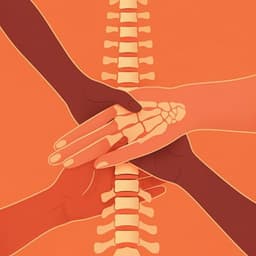
Psychology
The lived experience of caring for someone with bipolar disorder: A qualitative study
B. Speirsid, T. L. Hanstock, et al.
This qualitative study delves into the often-overlooked experiences of informal carers for individuals with bipolar disorder in Australia. Conducted by Bronte Speirsid, Tanya L Hanstock, and Frances J Kay-Lambkin, it uncovers critical insights into coping strategies and support needs, revealing five key themes and an urgent call for enhanced support tailored specifically for these dedicated carers.
Related Publications
Explore these studies to deepen your understanding of the subject.







